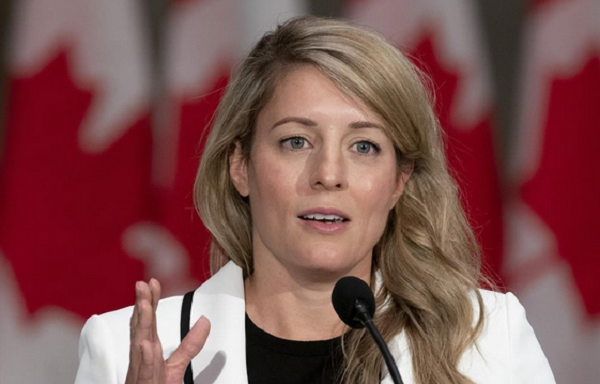Toronto’s rental market continues to soften with average listing costs down from November peak
Toronto’s rental market continues to show signs of softening, with average listing costs down further from their November peak.
Despite that backwards slide, prices remain at levels many households struggle to meet.
For Torontonians searching for a one-bedroom in April, the average listing hovered at $2,459, according to the latest data from rentals.ca and market research firm Urbanation — a drop of 0.5 per cent from March, and 2.7 per cent year over year. Still, that lease would require a household income of at least $99,000 per year in order to meet national affordability standards.
Two-bedroom listings cost $3,224 per month on average — a drop of 0.7 per cent since March and two per cent below the average in April last year. That home would only be affordable to a household making at least $129,000.
Across all apartment sizes, Toronto’s asking rents have declined by 5.4 per cent from their peak in November, a drop of roughly $150 a month. The same trend has taken hold in Canada’s other white-hot housing market, with asking rents also dropping this year in Vancouver.
“A lot of it is driven by supply,” said Urbanation president Shaun Hildebrand, noting a “record number” of condos in Toronto have been completed in recent months, with many of those units snapped up by investors to use as rentals.
Hildebrand also sees the easing of prices as a consequence of how rapidly the rental market heated up last spring and summer. “Rents rose extremely quickly. I think they overshot during that period, and now they’re kind of adjusting,” Hildebrand said.
The market may take some time to now stabilize, he said, but he doesn’t expect the rent declines to become a long-term trend.
As most unit types saw modest price reductions, bachelor apartments went the other direction in April, with a one per cent increase year over year. That finding corresponds with recent analysis from the Canada Mortgage and Housing Corp., which noted in its annual report that the vacancy rate for bachelor units in the GTA eroded the most over the last year.
In Oshawa, the rentals.ca and Urbanation figures show the average bachelor apartment listing in April cost 15 per cent more than it did in April 2023, now sitting at $1,624. In Guelph, bachelor units in April were found to cost 20 per cent more than they did last year, now at $1,778.
While Hildebrand noted the price difference in Toronto for bachelor units was “very minor,” he said the smallest units represented an entry point to the market — and as the Toronto rental sphere overall became more expensive, there was more demand for the units available at the most attainable prices.
“It’s the only space where you can get something for under $2,000 per month,” he said, while noting the recent injection of new supply included a significant chunk of bachelor units that might help boost the vacancy rate.
Looking ahead, Hildebrand doesn’t expect many more months where Toronto sees rent declines — with less new supply expected to come online as the development market has faced headwinds, and historic trends toward a hotter and more competitive rental market heading into the summer.
“You’ll see rents begin to escalate,” he predicted.
This article was first reported by The Star












